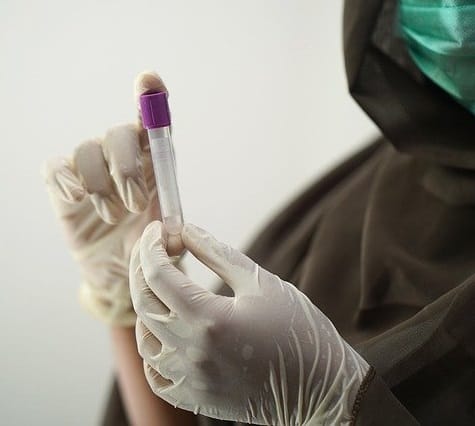
Food Intolerance and Food Allergy Testing
What is the difference between a food allergy and a food intolerance?
A food intolerance and a food allergy are often thought to be variations of the same thing and are usually thrown round in the same conversation, but the biological processes behind them, and how they affect you, are very different.
A food allergy is when the body’s immune system believes that it’s being ‘invaded’ and produces IgE (Immunoglobulin E) antibodies to fight off the food or drink ingredient it mistakenly considers to be harmful.
In the case of a food allergy, reactions can range from mild to severe and may affect one or more systems in the body, such as the digestive system, respiratory system or the skin.
In severe cases, however, the immune system triggers a response throughout the whole body, resulting in a systematic reaction (anaphylaxis) which is potentially fatal and would need immediate medical attention.
But what about a food intolerance?
A food intolerance is often a delayed biological reaction which, although uncomfortable and unpleasant, is not life-threatening.
A food intolerance is often caused by a difficulty digesting certain foods with symptoms emerging hours or days later. Depending on the type of food intolerance, the immune system can sometimes identify food protein particles as ‘foreign’ when they enter the blood stream and produce IgG antibodies to ‘attack’ the food in question.
We use YorkTest to process our food allergy and intolerance tests.
Breaking down the science
You’ve most likely caught onto the fact that a food allergy produces IgE antibodies.
Food intolerances on the other hand take different forms, such as lactose intolerance and coeliac disease. In this case, we look at IgG-mediated intolerances
YorkTest define food intolerance as a food-specific IgG reaction. There are four subtypes of IgG: IgG1 is the most prevalent, making up around 60-70% of your total IgG, followed by IgG2 (20-30%), IgG3 (5-8%). IgG4 only makes up 1-4% of the IgG antibodies present.
What are the symptoms of a food allergy?
Food allergy symptoms can vary from mild to severe, usually appearing from 30 minutes to two hours after. The most common food allergy signs and symptoms include:
Itching or tingling in the mouth
Swelling of the lips, face, tongue, throat or other parts of the body
Wheezing, shortness of breath or nasal congestion
Hives, eczema or itching
Nausea or vomiting, abdominal pain, diarrhoea
Fainting, feeling lightheaded or dizzy
Hay fever-like symptoms, such as sneezing or itchy eyes
Difficulty swallowing
In severe cases, the immune system may trigger a response throughout the whole body, causing anaphylaxis. The symptoms of anaphylaxis include:
Swollen tongue or a ‘lump in the throat’ sensation
Breathing difficulties
A sudden drop in blood pressure
Tight chest
Trouble swallowing or speaking
Feeling dizzy or faint
Rapid pulse
Loss of consciousness
Anaphylaxis is a medical emergency and anyone experiencing these symptoms needs immediate assistance.
Do I have a food allergy?
You may experience minor symptoms but, in some cases, if you consume the culprit food once again, it could lead to anaphylaxis. The way your body responds to a food allergy can be unpredictable.
If you suspect a food allergy, your first port of call is to see your GP. They can then refer you to a specialist and carry out certain tests, like a skin prick test.
What are the symptoms of a food intolerance?
Symptoms of a food intolerance include:
Abdominal pain or cramping
Gas and bloating
Vomiting
Tiredness
Headaches and migraines
Skin issues, such as acne, eczema, psoriasis or urticaria
Constipation or diarrhoea
Anxiety or depression
Respiratory issues, such as rhinitis and sinusitis
Joint pain, swelling, fibromyalgia and arthritis
The above symptoms can take hours or up to 3 days to appear. Therefore, it can be difficult to pinpoint your reaction, especially if a person has more than one food trigger.
How common are food allergies and food intolerances?
Food intolerances are estimated to affect 45% of the UK population, whereas a food allergy affects approximately 2% of the adult population.
It can be assumed that food intolerances have increased over the years, with speculation that changes in agriculture practices, antibiotic usage and environmental pollution could be responsible.
Do I have a food intolerance?
Food intolerances are much more common when in comparison to food allergies. They can occur at any point in your life and symptoms can be distressing, especially if they affect your day-to-day life.
Delayed onset food intolerances can be measured through a YorkTest programme. YorkTest have over 35 years’ experience in diagnostic testing and test your IgG reactions to up to 208 food and drink reactions, including cow’s milk, wheat, gluten, eggs and several wine types, such as Merlot and Shiraz.
The good news is that sometimes people can tolerate their food intolerances after a period of elimination.
Food intolerance Test – Price £150.00
- Measures all four subtypes of food-specific IgG -this is important as it ensures all of the different food-specific IgG reactions are detected.
- A simple finger-prick blood test
- Receive expert, accurate analysis from fully-accredited laboratory technicians
- Results listed in easy-to-read traffic light values: high, borderline, and normal reactivity
Allergy Check – Price £150.00
- A simple finger-prick blood test
- Accurate, scientific analysis
Further Information
Payment in full is required upon booking for both tests.
- Available for ages 2 and above
- Not available if you are pregnant, breastfeeding or suffering from any blood borne infection (e.g hepatitis or HIV)
- If you are taking steroids or immunosuppressants they may affect the results
- Test results could be affected if you exclude any foods from your diet

